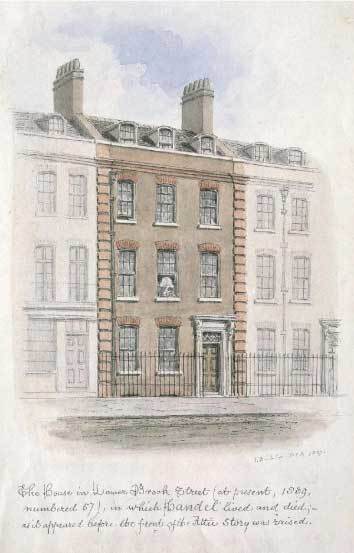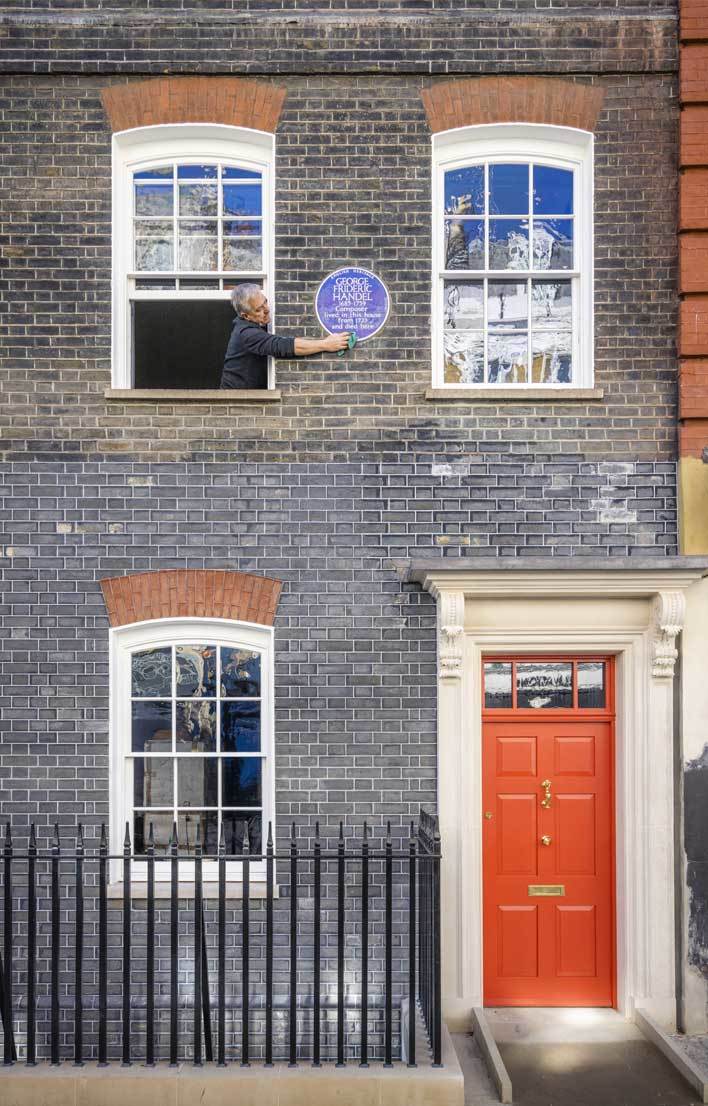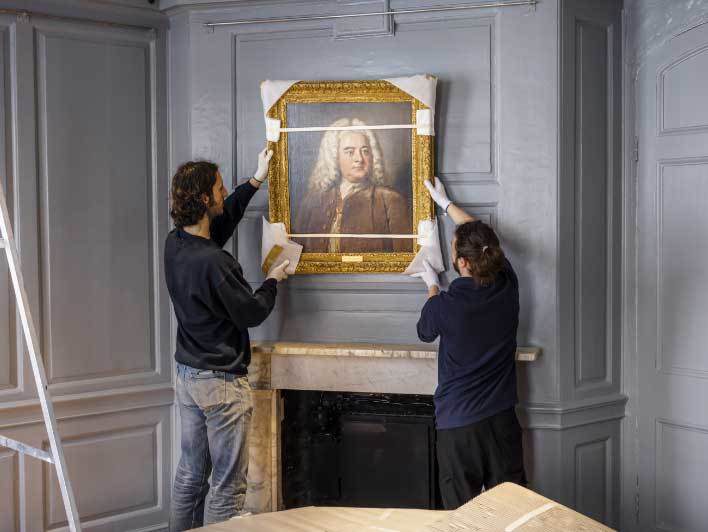AGRIPPINA (HWV 6)
Libretto: Vincenzo Grimani
First performance: 26th December 1709, Teatro San Giovanni Grisostomo, Venice.
Cast
- Margherita Durastanti (Soprano)
- Diamante Maria Scarabelli (Soprano)
- Valeriano Pellegrini (Sporano castrato)
- Francesca Vanini-Boschi (Contralto)
- Antonio Francesco Carli (Bass)
- Giuliano Albertini (Alto castrato)
- Giuseppe Maria Boschi (Bass)
- Nicola Pasini (Bass)
- Unknown

Act I
Agrippina, wife to the Emperor Claudius, explains to her son Nero that the moment for him to ascend the throne has at last arrived: she shows him a letter in which it is revelaed that Claudius has fallen victim to a storm while at sea. Then, without delay, Agrippina – who is prepared to go to any lengths to achieve her ends – sends (without either being aware of the other) for the two freedmen Pallas and Narcissus, of whose undisclosed passions for her she is well aware. To each of them she then confides the news of Claudius’s death, and asks, in exchange for her love, that they set off for the Capitol to hail Nero as his successor. Later, when the people have been summoned to the Capitol and Agrippina, announcing the Emperor’s death, asks those present to chose his successor, the voices of Pallas and Narcissus are immediately raised in support of Nero as the new Caeser.
Agrippina and Nero are on the point of ascending the throne when Claudius’s servant Lesbus suddenly arrives to announce that the Emperor has disembarked at Anzio safe and sound, thanks to the aid of the valourous Otho. The latter reaches the Capitol and tells Agrippina of his timely intervention, adding that Claudius, as a reward for having saved his life, has promised him the throne. At this news the four conspirators are dumbstruck. But in a private conversation Otho confides to Agrippina that he loves Poppea far more than the throne.
Knowing that Claudius also loves Poppea, Agrippina devises a new scheme that will allow her son to take power. She takes herself off to Poppea’s house and, having reassured herself that Poppea loves Otho, tells her that he has betrayed her by ceding her to Claudius in order to obtain the throne; she suggests, therefore, that in order to avenge herself, Poppea should make Claudius jealous by telling him that Otho, emboldened by his new rank, orders her to refuse Claudius and give herself to him: at this the Emperor will punish Otho by removing the throne from him. Poppea falls into the trap and, on Claudius’s arrival, follows Agrippina’s plan to the letter, obtaining from the Emperor all that she desires.

Act II
Meanwhile, in a street in Rome next to the imperial palace, Pallas and Narcissus, having discovered that they have been tricked by Agrippina, decide to form an alliance. Who should arrive but Otho, nervous about his imminent coronation. When Caeser enters on a triumphal chariot and acclaimed by the crowd, Otho goes up to the Emperor to remind him of his promise; but the latter brutally repulses him, calling him a traitor. Dismayed, Otho first turns to Agrippina for support, then to Poppea, and afterwards Nero, but all those present distance themselves from him, plunging him into the deepest dispair. Later Poppea, pondering Otho’s genuine unhappiness, begins to doubt his guilt, and so devises a stratagem for discovering the truth. Seeing him approach, she seats herself by a stream in her garden and pretends to be asleep: then, feigning to talk in her sleep, she reveals to him what Agrippina had told her: that he had ceded Poppea to Claudius in exchange for the throne. When Otho, countering the lies of Nero’s mother, declares his innocence, Poppea at last sees through Agrippina’s designs and swears to be avenged. Agrippina, meanwhile, realising the gravity of the situation, plans further misdeeds; first she summons Pallas, and promises him her love if he kills Otho and Narcissus; then she asks Narcissus to kill both Otho and Pallas. If on this occasion the two freedmen do not allow her to deceive them, she has better luck with Claudius; telling her husband that Otho wishes to be revenged upon him for the loss of the throne, she urges him to stifle all dissent by declaring Nero his successor. Claudius, impatient to depart to be with Poppea, gives his consent.

Act III
Poppea, who wishes to put right the wrong done to Otho, has conceived a plan; she instructs her lover to hide himself and keep his jealousy in check, whatever he may hear. Nero (whom she had invited earlier) now arrives: he too loves Poppea, and burns with desire for her, but she, telling him that his mother is about to arrive, persuades him too to hide. Next Claudius comes in and springs the trap. Poppea complains that the Emperor does not really love her, and when Claudius reminds her of all that he has done for her, mentioning Otho’s punishment, Popppea maintains that she was misunderstood: it was not Otho that importuned her, but Nero. Poppea then hides the Emperor and calls Nero, who, believing that Claudius has left, leaps out of hiding to resume his amourous suit: but Claudius interrupts him and rudely sends him packing.
The plan has worked; getting rid of Claudius with an excuse, Poppea leads Otho out of his hiding place, and the two, reconciled, swear eternal love to one another. Meanwhile the plot thickens: Nero recounts to his mother his sudden disgrace and asks her to defend him from Claudius’s anger, while Pallas and Narcissus inform Claudius of the conspiracy hatched by Agrippina during his absence, with the result that when Agrippina urges her husband to have Nero crowned, Claudius’s response is to accuse her of wishing to usurp his power. She admits to having sought to obtain the throne for Nero, but defends herself by claiming to have done so in order to prevent a worse outcome: upon the news of Caeser’s death, the soldiers, people and senate turned their minds to the succession; so to ensure that the throne remained in Claudius’s hands, she had Nero acclaimed.
Claudius is convinced by the words of Agrippina, who quickly seizes the initiative and accuses him of betrayal, urging him to distance himself from Poppea: the latter is Otho’s lover, Agrippina tells him, but Claudius contradicts her, telling her that it is Nero who desires Poppea. When Poppea, Nero and Otho arrive, Claudius accuses Nero of having hidden himself in Poppea’s apartments, which Nero cannot deny. Then, amidst the general turmoil and to everyone’s surprise, the Emperor ordains that Nero shall marry Poppea and Otho be his successor. But this solution satisfies none of the parties involved, whereupon Claudius, wishing to see all conflicts at an end, cedes the throne to Nero while giving Poppea in marriage to Otho. Finally, he calls on Juno to bless the betrothed and bring glory to the empire.
(c) 1997 Philips Classics Productions, translation George Hall.
Context
Agrippina was Handel’s second, and final opera written during his time in Italy. It ran for twenty-seven performances during the carnival season in Venice, and secured his international reputation. Enthusiastic audiences greeted every pause in the music with cries of ‘Viva il caro Sassone’ (Long live the dear Saxon). In many ways it is a summation of his work in Italy, largely made up as it is of music written during the previous three years – there are entire numbers taken from his early Italian oratorio La Resurrezione, from the nearly 100 chamber cantatas that he had written for private performances in Florence and Rome, and even a few quotes from Rodrigo. Perhaps this explains how Handel reportedly composed the work in only three weeks.
His first Agrippina was the great Italian soprano Margherita Durastanti. They had worked together previously in Rome, where she had portrayed Mary Magdalene in La Resurrezione, although she was swiftly replaced by a male castrato as women were officially banned from appearing on the Roman stage. She had also premiered many of Handel’s chamber cantatas, and was to follow him to London in 1720 when she became the prima donna of Handel’s first London opera company, The Royal Academy. Contemporary reports suggest that she was not a great beauty, but she was an exceptional singer and a fine actress. Of all the singers Handel was to work with, Durastanti was to have the longest professional relationship with the ‘caro Sassone’.


